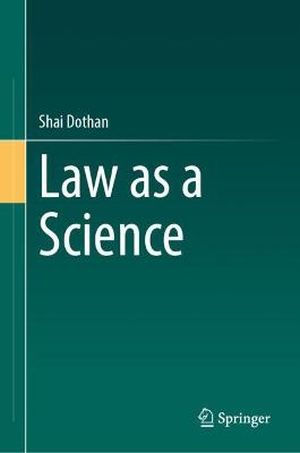We are now closed for the Christmas and New Year period, returning on Monday 5th January 2026. Orders placed during this time will be processed upon our return on 5th January.

The purpose of this book is to investigate what methods of interpretation and understanding of the law are useful for legal scholarship. The main idea is that legal scholarship needs to regularly make assumptions about the content of the law and about human behavior to better understand legal doctrine. For example, law and economics scholars often assume that people are rational or that the law aspires to efficiency. These assumptions may be untrue, but they can lead to hypotheses about the content of the law that are susceptible to empirical investigation against relevant legal sources. In contrast, conceptual thinking about the essence of the law does not make claims that can be falsified by observing legal sources. The book offers a methodology for examining the state of the law on a specific topic that aspires to be rigorous. It recommends first establishing what are the conflicting paradigms that explain the relevant legal field. These paradigms can serve as assumptions and scholars need to build a hypothesis that complies with all the relevant assumptions. The hypothesis can then be checked against legal sources. If there are relevant judgments on a similar topic, scholars can use reasoning by analogy to test the hypothesis against them, but only if the analogy is grounded in policy reasons. Analogies cannot be used only because legal solutions look conceptually similar. If a hypothesis about the law is confirmed by legal sources, it can be adopted as the best interpretation of the law on a particular point. To demonstrate that every assumption about the law can be contested, the book reviews three basic legal principles: proportionality, consistency, and legal truth. It suggests that such principles are useful assumptions that can lead to good predictions about the content of the law most of the time, but in certain situations, they should be discarded and replaced by other assumptions.